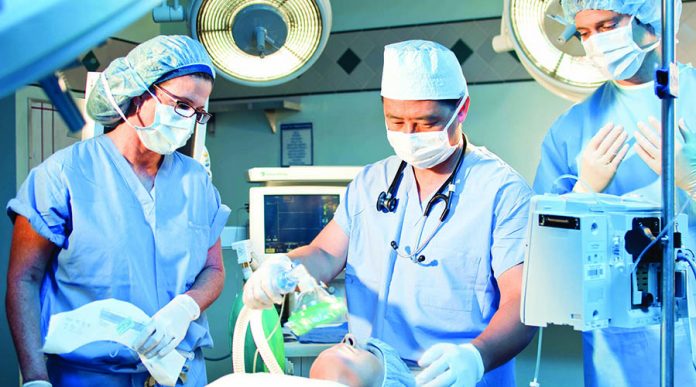BEIJING, There is a lot of cooperation on surgery between Pakistan and China, but anesthesia, a crucial field of them, is often neglected. In recent years, we have conducted a lot of academic exchanges and cooperation between Pakistan and China in this field, which will efficiently benefit the development of the two countries’ medicine.
This was stated by Medicine Doctor Huang YuGuang, Director of Division of Anesthesiology, Peking Union Medical College (PUMC), Council of World Federation of Societies of Anesthesiologists (WFSA) in an interview on Monday.
.
Under the frame of the China-Pakistan Medical Corridor project which was jointly initiated by Pakistan Medical Association (PTV) and China Medical Association (CMA), the top anesthesiologists of the two countries have communicated and conducted academic exchanges many times since 2016.
As chairman of the Anesthesiology Branch of the CMA, Huang has been contributing to strengthen conversations in this field between the two countries.
Huang told CEN: “Five years ago, I visited Pakistan with the CMA delegation and established a professional relationship with local anesthesiologists.
Since then, the CMA Anesthesiology Branch has invited Pakistani anesthesiologists to visit some of the best hospitals in China, including PUMC, for academic exchange.
During the operation and clinical work, Chinese and Pakistani anesthesiologists have further deepened our friendship and understanding of each other.”
Through these efforts, Chinese doctors have fully shared the latest progress and fruitful achievements in the field of anesthesia, and improved the overall level of anesthesia in BRI countries, including Pakistan.
“Encouragingly, with the rapid development of the country, Chinese medicine, including the specialty of anesthesia, with the best hospitals, the best medical staff and the best working conditions, has made such a breakthrough. At present, China’s Medical related fields such as anesthesia, are comparable to that of the western world,” Huang added.
To explain why anesthesia is crucial for Pak-Chin medical cooperation, he said: “The medical industry in both Pakistan and China is facing the same problem that anesthetic support is required for all surgical procedures. During surgery, the anesthesiologist controls the patient’s five vital signs: blood pressure, pulse, respiration, temperature, and consciousness. In particular, in view of the difficult and complex large-scale operations such as liver transplantation, kidney treatment, which China and Pakistan have already carried out cooperation on, in addition to the skills and professionalism of surgeons, the level of anesthesia must also be able to support the surgery.”
At the end of the interview, CMA Anesthesiology Branch said that it would invite Pakistani students and experts to China for training and study, and provide funds, experts and other resources.
“In the field of anesthesia, we can offer our full support to our iron brother. We also hope that our Pakistani anesthesiologists can strengthen communication with us,” Huang said.
Follow the PNI Facebook page for the latest news and updates.









